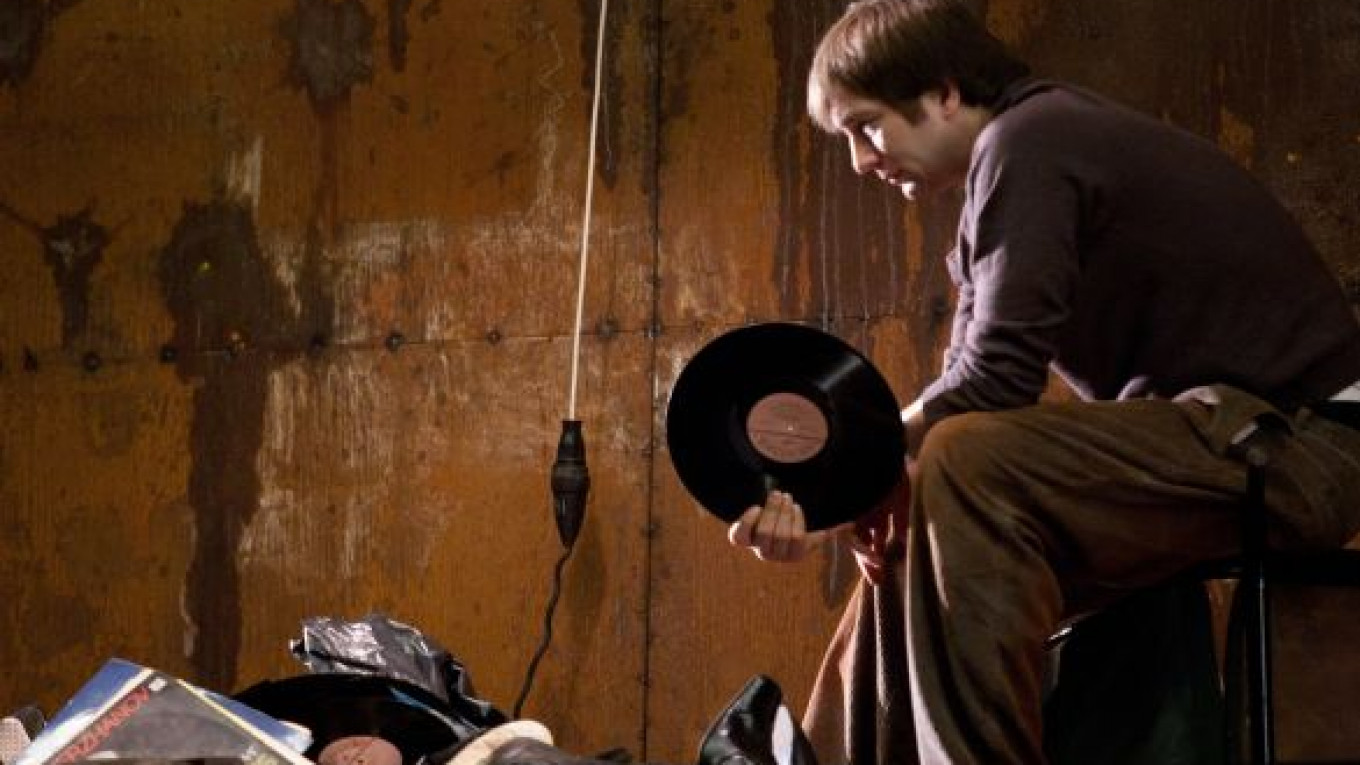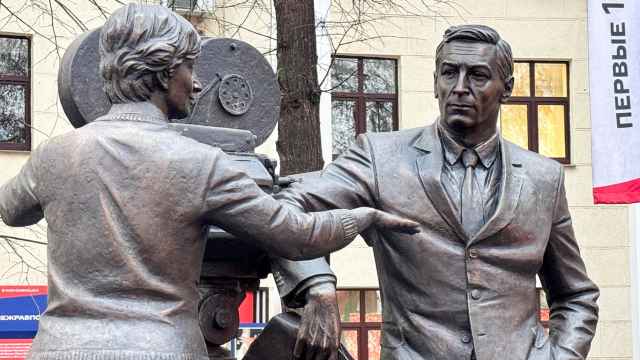As one of the great men of contemporary theater, Tom Stoppard surely knows that theater and rock ’n’ roll don’t mix.
The built-in artifice of theater — its manifestations from avant-garde to pop are grounded in our ability to “willingly suspend disbelief” — rarely is capable of interlocking with the natural fury unleashed by Elvis Presley, Little Richard, Chuck Berry, the Rolling Stones, James Brown, Bob Dylan, Nirvana, the Roots, Mumford & Sons and a couple of thousand more I would love to mention if this space weren’t limited to 777 words.
None of that makes Stoppard less heroic for seeking a common ground between the two art forms in his play “Rock ’n’ Roll.” He had good reason to. The music, or at least the attitude reflected in and encouraged by the music, played no small part in the changes that affected his birth land of Czechoslovakia in the years from the Prague Spring in 1968 to the Velvet Revolution of 1989.
Moreover, “Rock ’n’ Roll,” staged by Adolf Shapiro at the National Youth Theater, isn’t about rock ’n’ roll music at all. It is the tale of several generations of people in Cambridge, England, and Prague, Czechoslovakia, whose lives embraced a time of radical political evolution; the belief in, and disillusionment with, utopian ideas; and the parallel development of a kind of music that once was perceived as revolutionary not only in the Eastern bloc — let’s not forget Americans burning Beatles records in the 1960s.
Actually, the phrase “rock ’n’ roll” in Stoppard’s usage impresses me more as an incitement: “Here we go!” “Let’s get this thing moving!” History, in other words, can’t stand still forever.
This is a play about change, about what people can or cannot do to effect it, and what happens to them when it does come about.
Jan (Pyotr Krasilov) is a Czech student in England who goes home when Soviet tanks roll into Prague in 1968. His reasoning is somewhat obscure. Unlike his friend Ferdinand (Alexander Grishin), an underground organizer constantly risking run-ins with the secret police, he is not interested in politics. He is focused on protecting his collection of Pink Floyd and Velvet Underground records.
Back in “civilized” England, Jan’s teacher Max (Ilya Isayev) continues to believe in the intellectual notion of socialism with a human face, no matter what news comes out of Prague. Meanwhile, he is not indifferent to the attractive young female students who visit his sick wife Eleonora (Ramilya Iskander) at home for lessons in classical poetry, and no one is immune to the effects of Big Brother hovering over their shoulder.
“Rock ’n’ Roll” is a sweeping, Tolstoyan tale crisscrossing several decades, showing its protagonists as young whippersnappers and graying oldsters. Even love, we learn, is capable of withstanding decades of emotional starvation. Through it all run references to a nonpolitical, but uncompromising underground Czech band called The Plastic People of the Universe. The musicians and their followers paid for their fierce independence with
beatings and prison terms.
At his best Stoppard is a master stylist, his plays “Rosencrantz and Guildenstern are Dead” and “Arcadia” numbering among the treasures of English drama. “Rock ’n’ Roll,” however, seems more interested in mere story than in language, although I must admit that may be a difficult point to grasp in translation. Still, long talks about the basics of communism and the admirable aspects of Josef Stalin hit the ground with a terrible clunk.
More often than not, “Rock ’n’ Roll” looks like a melodrama that wants to be more, but doesn’t put forward sufficient reasons for us to consider it so.
That said, the acting at the National Youth Theater is engaging. The interspersing of music — Lou Reed, Dylan, Pink Floyd, the Stones — is handled with sensitivity. Alexander Shishkin’s huge set is efficient if not particularly attractive — its numerous rusty cubicles allow action to take place on numerous levels at once, although it often has us craning our necks for long periods to watch events transpiring unusually high above the stage.
Perhaps Shishkin’s cleverest move was to make a Soviet tank look comically like an inflatable version of the Beatles’ yellow submarine.
I did not see the depth and nuance that many enthusiastic critics saw in “Rock ’n’ Roll” when it opened in London, Prague and the United States in 2006 and 2007. It does remind us, however, of that prescient truth — it may only be rock ’n’ roll, but we do like it.
“Rock ’n’ Roll” plays Friday at 7 p.m. at the National Youth Theater, located at 2 Teatralnaya Ploshchad. Metro Teatralnaya. Tel. 692-0069, 692-1879. . Running time: 3 hours, 5 minutes.
A Message from The Moscow Times:
Dear readers,
We are facing unprecedented challenges. Russia's Prosecutor General's Office has designated The Moscow Times as an "undesirable" organization, criminalizing our work and putting our staff at risk of prosecution. This follows our earlier unjust labeling as a "foreign agent."
These actions are direct attempts to silence independent journalism in Russia. The authorities claim our work "discredits the decisions of the Russian leadership." We see things differently: we strive to provide accurate, unbiased reporting on Russia.
We, the journalists of The Moscow Times, refuse to be silenced. But to continue our work, we need your help.
Your support, no matter how small, makes a world of difference. If you can, please support us monthly starting from just $2. It's quick to set up, and every contribution makes a significant impact.
By supporting The Moscow Times, you're defending open, independent journalism in the face of repression. Thank you for standing with us.
Remind me later.







